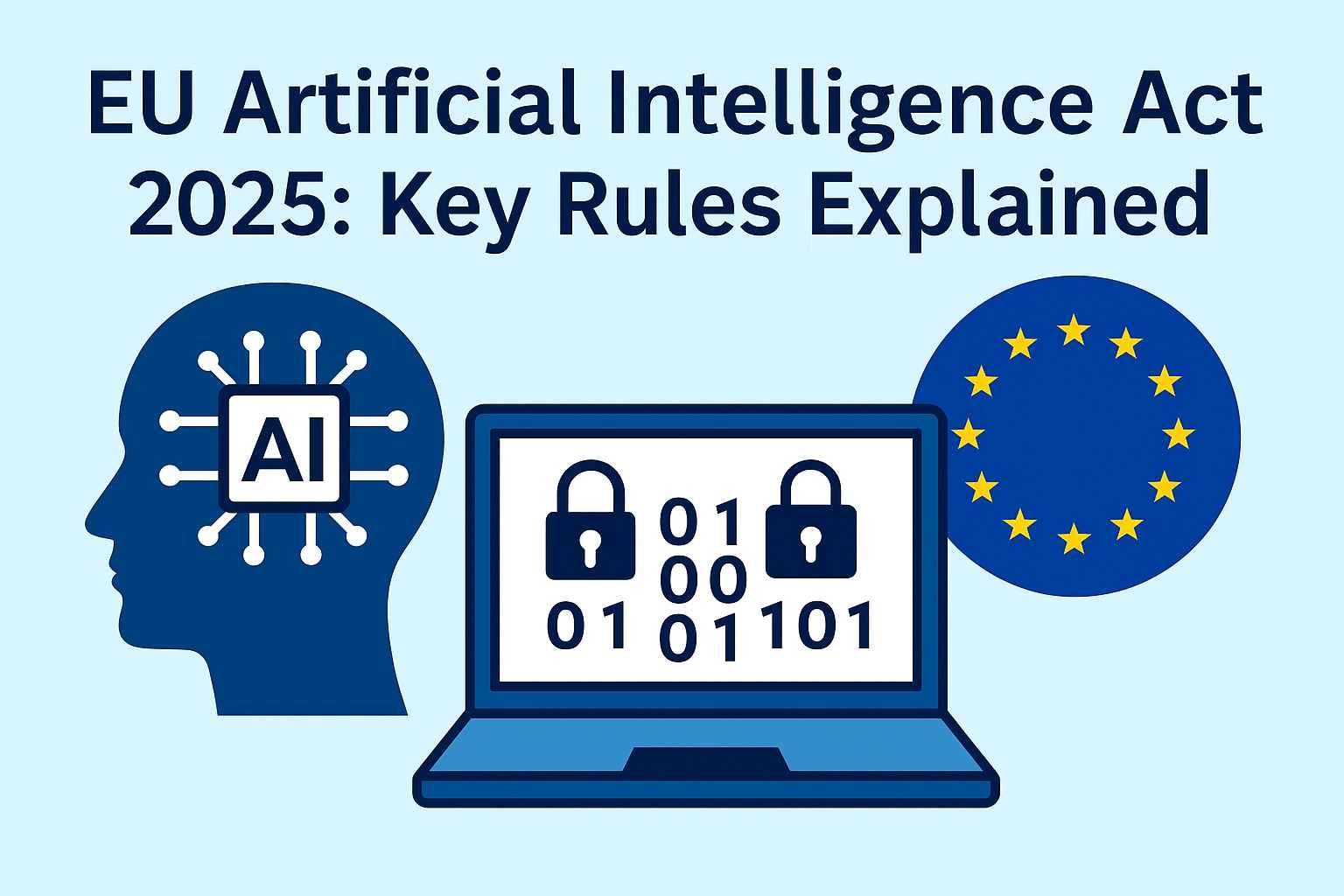On this page you will read detailed information about Artificial Intelligence Policy in the United States.
As an informed citizen, you may wonder about the current state of artificial intelligence policy in the United States and what the future may hold. AI technology has advanced rapidly in recent years and is becoming more integrated into critical infrastructure and government systems. However, AI policy in the U.S. remains fragmented. There is no overarching national strategy to coordinate AI development and implementation across sectors. Instead, there are various agency-level policies, strategies, and executive orders addressing AI in targeted ways. Multiple bipartisan bills have been introduced in Congress but none have been enacted into law. Stakeholders call for more comprehensive regulation to promote safety, ethics, and innovation. The future of AI policy in America remains unclear but further action is needed to ensure responsible development and governance of advanced technologies that will shape our shared future. Overall, artificial intelligence promises both benefits and risks that depend on the policy choices we make today.
The Current State of AI Policy in the U.S.
The current state of AI policy in the U.S. is fragmented. There are no overarching laws or regulations governing AI development and use at the federal level. However, several government agencies have issued guidance and recommendations on AI, and certain applications of AI like autonomous vehicles are subject to regulation.
The White House published high-level principles for AI development in 2020 that aim to promote trustworthy, ethical, and equitable AI. However, these principles are not legally binding. Government agencies including the Department of Defense, Federal Trade Commission, and Food and Drug Administration have also released AI guidelines specific to their areas of oversight.
Legislation
Several AI-related bills have been introduced in Congress but have not yet been enacted into law. The FUTURE of Artificial Intelligence Act would direct the Secretary of Commerce to establish a Federal advisory committee on AI. The Algorithmic Accountability Act would require companies to audit automated decision systems for bias. The Augmenting Compatibility and Competition by Enabling Service Switching (ACCESS) Act would make it easier for users to port data between technology companies.
While legislation remains pending, some policymakers argue regulation needs to keep pace with advances in AI to address risks like bias in automated decisions, threats to privacy and security, and impact on jobs. However, others warn that premature or overly restrictive regulation could stifle innovation. The debate around if and how to regulate AI is complex with valid arguments on both sides.
AI policy in the U.S. is still evolving. Close collaboration between government, industry, academia and civil society will be needed to develop laws and policies that adequately address the risks of advanced AI, promote its responsible development, and allow continued progress in this crucial field of technology. The outcome of these ongoing policy discussions will shape the future of AI and its impact on society.
In the previous post, we had shared information about LLC vs. Inc. : Choosing The Right Business Entity For Your Business, so read that post also.
Key Government Agencies Overseeing AI Development
In the United States, several government agencies play an important role in regulating and supporting the advancement of artificial intelligence (AI) technology. Two of the leading organizations are:
- The National Science Foundation (NSF) funds basic research in AI and machine learning at universities across the country. The NSF aims to promote scientific progress in the U.S. and ensure the nation’s economic competitiveness and security. Grants from the NSF have supported research leading to breakthroughs like deep learning algorithms and self-driving cars.
- The Department of Defense (DoD) directs and coordinates all agencies and functions of the government relating directly to national security and the military. The DoD actively invests in AI research and systems that can enhance U.S. military capabilities, such as image recognition for drones, predictive analytics to anticipate adversary behavior, and AI assistants to improve logistics planning. However, the use of autonomous weapons is still controversial and debated.
Other notable agencies engaged with AI policy and funding include:
- The White House Office of Science and Technology Policy (OSTP) which advises the President on technology issues and aims to accelerate new technologies like AI that can address national priorities.
- The Department of Commerce which promotes AI innovation, protects intellectual property, and ensures safety and ethics. For example, the National Institute of Standards and Technology (NIST) under the DOC is developing standards for trustworthy AI systems.
- The Department of Health and Human Services (HHS) which oversees the use of AI in healthcare and biomedical research. HHS aims to enable AI tools that can help improve health outcomes and reduce costs, while safeguarding privacy and security.
- The Department of Transportation (DOT) which regulates the testing and deployment of autonomous vehicles and unmanned aircraft systems. The DOT aims to promote the safe integration of AI into transportation systems.
- The Federal Trade Commission (FTC) which enforces laws against unfair or deceptive practices and protects consumers. The FTC monitors how companies collect and use personal data to train AI systems and aims to ensure transparency, fairness and accountability.
AI policy in the U.S. is still emerging, but government agencies are working to promote innovation in AI that benefits society, while managing risks and challenges. With prudent oversight and guidance, AI can achieve its promise to improve lives, empower workers and drive economic growth. However, policymakers must be proactive and thoughtful to ensure its responsible and ethical development.
Prominent AI Initiatives and Strategies
The U.S. government has launched several initiatives and strategies focused on AI policy and governance. Two of the most prominent are:
The American AI Initiative
In 2019, the Trump administration issued an executive order launching the American AI Initiative, a whole-of-government approach to advance AI R&D and promote its responsible use. The initiative aims to promote and protect national AI technology and innovation competitiveness; ensure that AI systems are robust, secure, and safe; train an AI-ready workforce; and accelerate the use of AI to benefit society.
National Artificial Intelligence Research and Development Strategic Plan
The National AI R&D Strategic Plan, released in 2016 and updated in 2019, establishes a set of objectives for federally funded AI research. The plan focuses on long-term challenges and opportunities in AI that are important to society and U.S. scientific and economic leadership. It aims to advance AI research in areas such as machine learning, computer vision, natural language processing, robotics, and more. The plan also emphasizes the importance of developing AI that is safe, secure, and aligned with human values.
In addition to these initiatives, various legislation has been introduced in Congress related to AI governance, research funding, education, and workforce training. There have also been recommendations from independent commissions on AI policy. However, at the time of this writing, no comprehensive federal AI regulation has been enacted in the U.S.
AI policy remains an evolving issue, and the landscape may look quite different in the coming years with changes in political leadership and as new technologies continue to emerge. A consistent, long-term, and collaborative approach across government, industry, and society will be needed to ensure the responsible development of AI.
Areas of Focus and Concern Around AI Ethics and Safety
The rise of AI has brought increased attention to issues surrounding ethics and safety. As AI systems become more advanced and autonomous, it is crucial that policymakers consider how to ensure these systems are aligned with human values and priorities. Some of the key areas of focus and concern around AI ethics and safety include:
Bias and Fairness
AI systems can reflect and even amplify the biases of their human creators. Policymakers seek to address this by promoting diversity and inclusion in the tech sector, auditing AI systems for unfair impacts, and designing AI that is equitable and just.
Transparency and Explainability
Many AI techniques are based on complex algorithms and neural networks that are opaque and difficult for people to understand. This “black box” problem makes it hard to audit AI systems and ensure they are behaving as intended. Requiring explainability and transparency is key to building trust in AI.
Privacy and Data Use
AI systems rely on huge amounts of data, and there is a risk that personal information may be misused. Regulations like the GDPR give users more control over their data, but policymakers must continue to ensure AI does not violate people’s right to privacy.
Safety and Control
As AI becomes more autonomous, it is important to guarantee that systems behave safely and remain under human oversight. Fears about advanced AI running out of human control and causing unforeseen harm have led to discussions around AI alignment, value learning, and other safety practices.
Developing laws, policies and best practices in these areas will be crucial to promoting the responsible development of AI that respects human values and priorities. With proactive governance and oversight, policymakers can help ensure that AI’s future impact on society is positive, equitable and just. Overall, AI ethics and safety should remain a top priority as progress in the field continues to accelerate.
The Future of AI Policy and Regulation in America
In the coming years, the U.S. will likely implement new policies and regulations on AI development and use. As AI continues to advance rapidly, policymakers want to ensure its responsible and ethical development. However, regulating a fast-changing technology is challenging. The U.S. will have to strike a balance between limiting harmful applications of AI and enabling continued innovation.
The White House and Congress have signaled interest in developing AI policy and regulation. The White House published guidance on AI regulation in January 2021, suggesting a “light-touch, flexible” approach focused on applications of concern like biometric surveillance and autonomous weapons. Bills introduced in Congress aim to establish committees to develop regulatory frameworks for AI or limit certain uses like social credit scores. However, passing new laws in this area may face obstacles.
Industry groups and think tanks have proposed frameworks for AI policy. These frameworks promote principles like transparency, fairness, and accountability to build trustworthy AI. Self-regulation by companies is another approach, with tech companies releasing their own AI ethics guidelines. Critics argue that self-regulation may not adequately protect the public. The U.S. will likely consider a mix of policy options – new laws, agency oversight, public-private partnerships, and self-regulation.
International allies could shape U.S. policy as well. Western democracies are collaborating on AI regulation to align values and standards. The U.S. and EU recently announced a joint plan to cooperate on AI policy and governance. If the EU passes laws limiting certain AI uses, the U.S. may face pressure to follow suit to facilitate trade and data-sharing across the Atlantic. U.S. policymakers will have to balance international priorities with domestic concerns.
In the coming decade, the contours of AI policy in America will take shape. Regulation will likely remain limited and flexible but aim to curb malicious use of AI, such as for disinformation or job disruption. Policymakers seek to ensure AI progress benefits humanity. With open debate and by learning from allies, the U.S. can develop a regulatory approach upholding ethics and innovation. Overall, the future of AI in America looks bright but policy has an important role to play in guiding its development.
Conclusion
In closing, as AI continues its rapid advancement and integration into all spheres of life, policymakers in the US must continue developing policies and regulations to ensure its safe, ethical, and equitable development and use. Though progress has been made, much work remains. You have a role to play in helping shape AI’s future as well. Make your voice heard by participating in public discussions on AI, providing input to lawmakers and policy groups, and supporting organizations aiming to maximize the benefits of AI while minimizing the risks. The policies established today will help determine whether AI’s impact on the world is overwhelmingly positive or negative. Though the challenges ahead are significant, with open dialogue and responsible stewardship, AI can achieve its promise to improve lives and society. The future remains unwritten.
Disclaimer
The information and services on this website are not intended to and shall not be used as legal advice. You should consult a Legal Professional for any legal or solicited advice. While we have good faith and our own independent research to every information listed on the website and do our best to ensure that the data provided is accurate. However, we do not guarantee the information provided is accurate and make no representation or warranty of any kind, express or implied, regarding the accuracy, adequacy, validity, reliability, availability, or completeness of any information on the Site. UNDER NO CIRCUMSTANCES SHALL WE HAVE ANY LIABILITY TO YOU FOR ANY LOSS OR DAMAGE OF ANY KIND INCURRED AS A RESULT OR RELIANCE ON ANY INFORMATION PROVIDED ON THE SITE. YOUR USE OF THE SITE AND YOUR RELIANCE ON ANY INFORMATION ON THE SITE IS SOLELY AT YOUR OWN RISK. Comments on this website are the sole responsibility of their writers so the accuracy, completeness, veracity, honesty, factuality and politeness of comments are not guaranteed.
So friends, today we talked about Artificial Intelligence Policy in the United States, hope you liked our post.
If you liked the information about Artificial Intelligence Policy in the United States, then definitely share this article with your friends.











